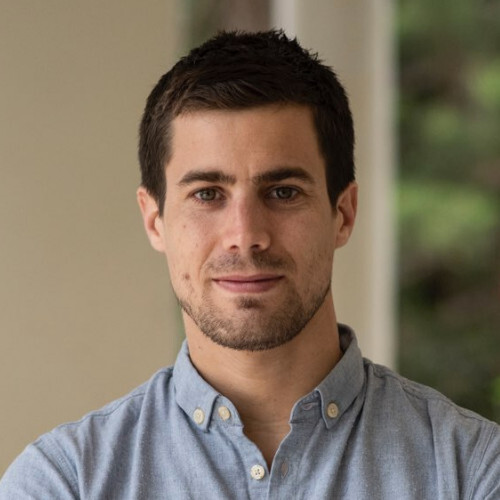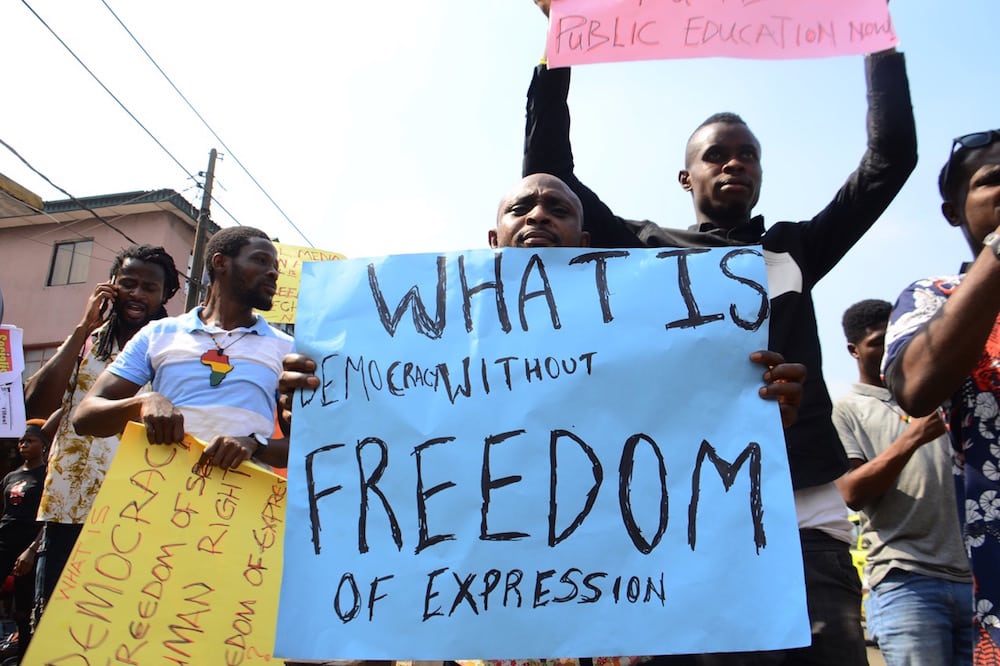You are either with the government, or you self-censor. This is the state of press freedom and freedom of expression in Mali under the current transitional government.
The above sums up the dilemma journalists and communication professionals face in Mali, a West African country plagued with terror attacks and saddled with a delicate political situation.
The kidnapping of French journalist, Olivier Dubois, by a group of terrorists on April 8, 2020, exemplifies the insecurity that Malian journalists face. A contributor to the Le Point, Jeune Afrique and Libération newspapers, Dubois was abducted in Gao (Mali) and continues to be held captive by his captors one year and six months after his abduction.
In view of the precarious security situation and the ever-deteriorating press freedom environment, Malian journalists are constrained to ply their vocation with extreme caution, anxious not to provoke the government or the rebels. As a result, the country recorded only three press freedom violations in the first half of 2022, the relatively few violations being the result of self-censorship induced by fear rather than a conducive press freedom environment.
In the first incident recorded in January 2022, the Malian authorities announced new and more stringent accreditation requirements for foreign media correspondents who enter the country to work.
On February 7, 2022, the military junta expelled Benjamin Roger, a French journalist for Jeune Afrique, less than 24 hours after his arrival in Bamako. The authorities blamed the special correspondent for not obtaining the necessary work permit, an accreditation that was until then rarely required.

On March 16, 2022, the authorities suspended the French stations, France 24 and RFI, over accusations of broadcasting “allegations of abuses committed by the Malian armed forces (FAMa).”
These three incidents, in 2022, earned Mali the sixth place out of a ranking of eight countries in a Freedom of Expression Monitor by the MFWA.
Mistrust hangs over the press community in Mali, even though no violations were recorded in the second quarter (April-June 2022).
Although no journalists have been prosecuted over their work, self-censorship has unfortunately become a reality, according to freelance journalist Idrissa Samaké.
“We are not directly targeted, but everything we publish is closely monitored. This is why, out of fear of being questioned, we refrain from talking about certain realities, but prefer to talk often about subjects such as ‘the rise in power of the army advocated by the authorities.’ We also fear that certain information implicating the Fama will demoralize the troops in their fight against terrorism.”
Most newspapers that were once opposed to the government have changed their tune due to fear of reprisal by the authorities.
This situation was the subject of an editorial on Joliba TV on September 30, 2022. The station lamented what it called a culture of “pensée unique” (one-track thinking). Taking an opposite stance to the rapturous applause Mali’s Prime Minister received for his speech at the UN General Assembly, the TV station, in its editorial presented by Mohamed Halidou Taher, said the tone and posture of Prime Minister Choguel Kokalla Maiga were hostile and undiplomatic.
And as if to confirm Joliba TV’s lamentation that the authorities are imposing a one-track thinking culture on Malians, the country’s media regulator took the media organisation to task over the defiant editorial.
On October 12, 2022, the High Authority for Communication (HAC), issued a letter to the television channel accusing it of making defamatory statements and baseless accusations against it (the HAC), against the state of freedom of expression in Mali and the transitional government.
The HAC said Joliba TV’s “Editorial” programme contained “unfounded allegations and defamatory passages. It, therefore, violates the ethics and deontology of journalism.” The regulator referred to Article 2 of the law on private audiovisual communication services (law n° 2012-019 of March 12, 2012).
“The show often makes use of expressions with strong pejorative connotations when referring to the action of the Transitional authorities,” according to the HAC which summoned the presenter to respond to accusations.
The HAC’s action provoked strong reactions from press organisations in Mali, which did not mince words in condemning it. The press organizations also expressed their support for the TV channel.
This suffocating press freedom environment is not surprising though, given a decree that was introduced in 2020. During a cabinet meeting held on December 18, 2020, Mali’s military authorities approved the decree that read: “relevant administrative authorities are empowered to take all appropriate measures to ensure the control of the press and publications of all kinds, social networks, as well as radio or television broadcasts, film screenings and theatrical performances.”
The measure was taken under the pretext of curbing insecurity and the wild spread of the coronavirus disease in several urban areas of Mali.
Freedom of expression
While journalists preferred to remain silent to escape the wrath of the authorities, activists and other brave citizens who dared to exercise their right to free expression have paid heavy prices. Activist Abdoul Niang was arrested on August 5, 2021, and placed under a committal order, ostensibly as part of an investigation into the 2016 disappearance of Birama Touré, a Malian journalist.
Issa N’Kaou Djim, third vice-president of the National Transitional Council (Conseil national de transition, CNT), was imprisoned and subsequently disbarred from the CNT following his criticism of Prime Minister Choguel Kokalla Maiga.
Leader of the opposition political party, Solidarité Africaine pour la Démocratie et l’Indépendance (SADI), Oumar Mariko, also found himself in a similar situation in December 2021 when he was questioned for making ‘insulting remarks’ against Prime Minister Choguel Maïga.
Mariko was slapped with a lawsuit in April 2022 after he accused the army of abuses during a political meeting, a case that forced him into hiding after members of Mali’s security forces stormed his home to arrest him. When the soldiers did not find the politician at his home, they proceeded to set up surveillance after seizing the mobile phones of his family members
These developments define the appalling state of freedom of expression and opinion under the current military junta. This is not to mention the fact that the infamous decree introduced in 2020 allows the authorities to regulate or prohibit public processions, parades, gatherings and demonstrations.
The military authorities justify these draconian measures as imperative under Article 13 of Law No. 2017-055 of the country’s emergency laws of 06 November 2019.
The Media Foundation for West Africa (MFWA) is deeply concerned about the state of freedom of expression and freedom of the press in Mali and calls on the authorities to adopt a more tolerant and conciliatory stance towards the press and dissenting voices. We also call on the transitional government to allow all Malians to express themselves on national issues without fear in order to achieve an inclusive transition.
Finally, the MFWA urges the media to maintain professionalism at all times.






